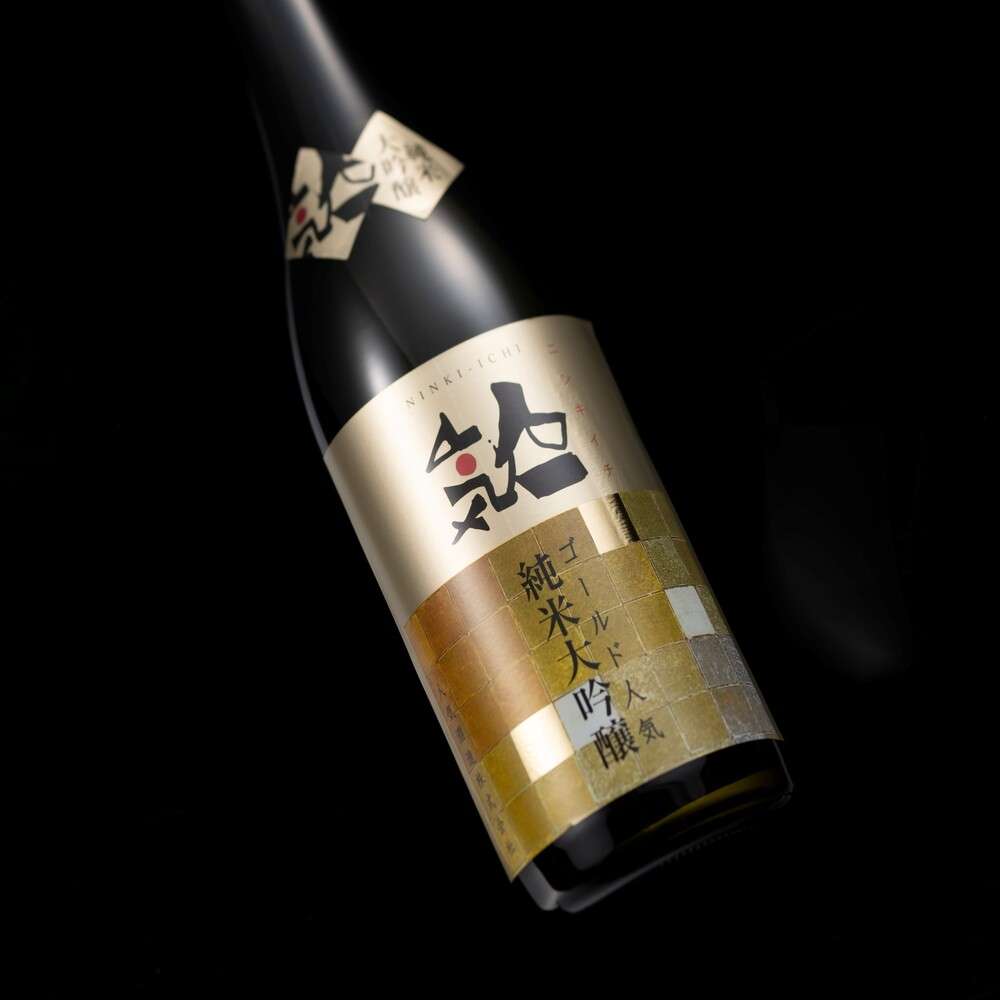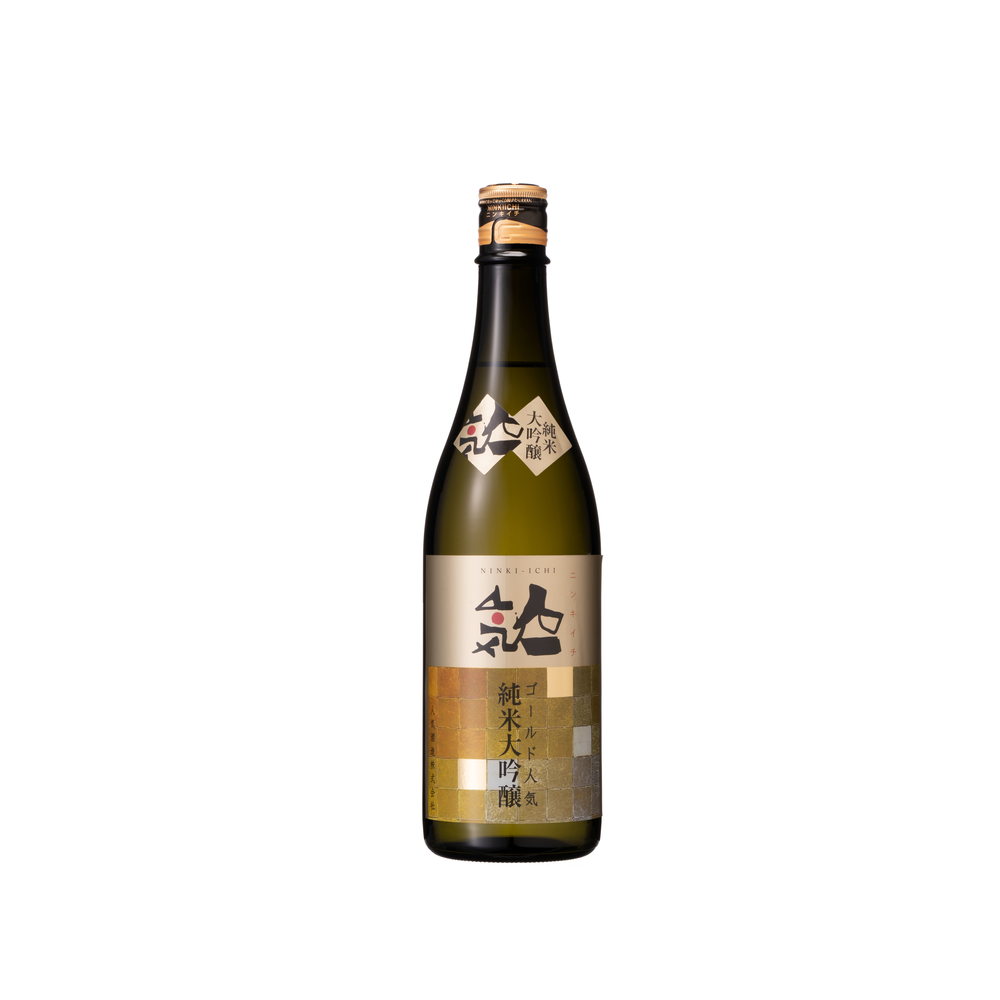-
 >
>
- Product list >
- Ninki-ichi Gold Ninki Junmai-daiginjo (720ml)
Ninki-ichi Gold Ninki Junmai-daiginjo (720ml)
詳しく見る
- *All prices shown are the product prices from the Japanpage:.
- *Product price can be shown in multiple currencies as reference values.
- *Payment should be made in Japanese yen.
- *After filling in delivery address, grand total (product price + shipping cost (packing + shipping + insurance) +tariffs & taxes) will be shown on the shipping cart page.
- *All prices shown are the product prices from the Japanpage:.
- *Product price can be shown in multiple currencies as reference values.
- *Payment should be made in Japanese yen.
- *After filling in delivery address, grand total (product price + shipping cost (packing + shipping + insurance) +tariffs & taxes) will be shown on the shipping cart page.
Ninki-ichi Gold Ninki Junmai-daiginjo is the representative sake of the Ninki Ichi brand, known for its fragrant and robust flavor. Its taste is adequately dry and clean with a tinge of sweetness, leaving an impressive light aftertaste. It's also brewed with the renowned subterranean water of Mt. Adatara, which contains well-balanced minerals, and locally grown top-class sake rice polished to 50%. The sake is slowly fermented at low temperature in traditional vats made of century-old cedarwood to produce a complex quality. Also, to prevent deterioration from air exposure, it's stored in bottles that are lit once rather than tanks to maintain high quality. This famous sake was used in the Nobel NightCap 2012, the party marking the finale of the Nobel Prize. It has won many competitions, such as Kura Master, the U.S. National Sake Appraisal, and the Wineglass Oishi Nihonshu Awards, acclaimed inside and outside Japan. Enjoy delicious Junmai Daiginjo at an affordable price.
About the Ninki Ichi Brand
Driven by the ideas of "brewed by people with care (Ninki) and "aiming for the best (Ichi)," hence its name Ninki Ichi. Adheres to the concept of "only Ginjo, only hand-brewed," and exclusively uses Japanese-style cauldrons for steaming, hand-makes koji, ferments sake in large wooden vats to produce a complex quality, and stores all liquor in bottles to maintain high quality.
Recommended temperature
- Atsukan (50 - 55℃)
- Jokan (45 - 50℃)
- Nurukan (30 - 40℃)
- Room temperature (15 - 20℃)
- Hanabie (10℃)
- Yukibie (5℃)
Type


Tag
Appearance
-
Clarity
Transparency
Hazy
-
Colour
Colorless
Dark brown
-
Intensity
Water
Deep
Nose characteristics
-
Intensity
Low
Strong
Taste characteristics
-
Light / Body
Light
Body
-
Sweet / Dry
Sweet
Dry
-
Simple / Complexity
Simple
Complexity
-
Acidity
Low
High
-
Umami
Low
High
-
Finish
Low finish
Long finish
Aroma and flavor
Apple
Detailed information
| Volume | 720ml |
|---|---|
| Size (L W H) | 7.8 x 7.8 x 28.6 cm |
| Weight | 1.2kg |
| Ingredients | 米(国産)、米こうじ(国産米) |
| Region | Fukushima |
| Alcohol content | 15%vol. |
|
Sake Meter Value
|
+2.0 |
|
Acid level
|
1.8 |
|
Polishing ratio
|
50% |









